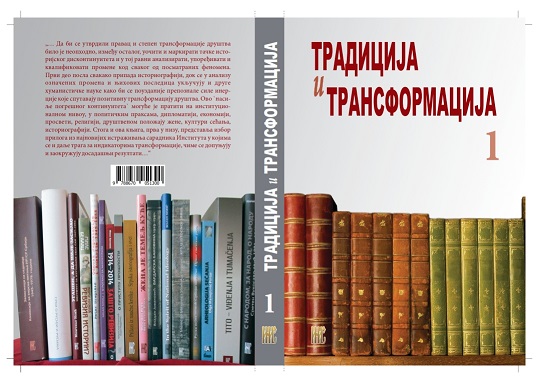Политичко опредељивање сељаштва у Србији између два светска рата
Political Orientation of Peasantry in Serbia between the Two World Wars
Author(s): Momčilo Isić
Subject(s): Civil Society, Political history, Social history, Rural and urban sociology, Interwar Period (1920 - 1939), Sociology of Politics
Published by: Institut za noviju istoriju Srbije
Keywords: Peasantry; Serbia 1918-1941; politics; authority; elections; agitation;
Summary/Abstract: As a dominant social class within the country’s population and as a social group which suffered most of the war casualties, Serbian peasantry had provided a crucial contribution to the creation of Yugoslav state in 1918. It remained a reservoir of manpower and of physical, moral and economic strength of the Serbian people in the Yugoslav Kingdom, serving as a faithful guardian of „national thought“ and tradition. However, the peasantry failed to assume a greater political influence in the country. The main reasons for quite a passive and marginal status of Serbian peasantry in political life were its backwardness, fear of authorities and its economic underdevelopment. Regardless of the fact that political parties have usually betrayed the peasants` expectations, Serbian peasantry continued to enter the polls and to vote. Actually, the peasantry was „voting” rather than having opportunity to choose between political options. One cannot say it was outwitted by unrealistic promises, more likely it was under the influence of traditional belief that the state must be attributed with the power, no matter what. The state interests were a kind of „sanctity” for a peasant in interwar Serbia.
Book: Традиција и трансформација. Политичке и друштвене промене у Србији и Југославији у 20. веку
- Page Range: 237-252
- Page Count: 16
- Publication Year: 2015
- Language: Serbian
- Content File-PDF

